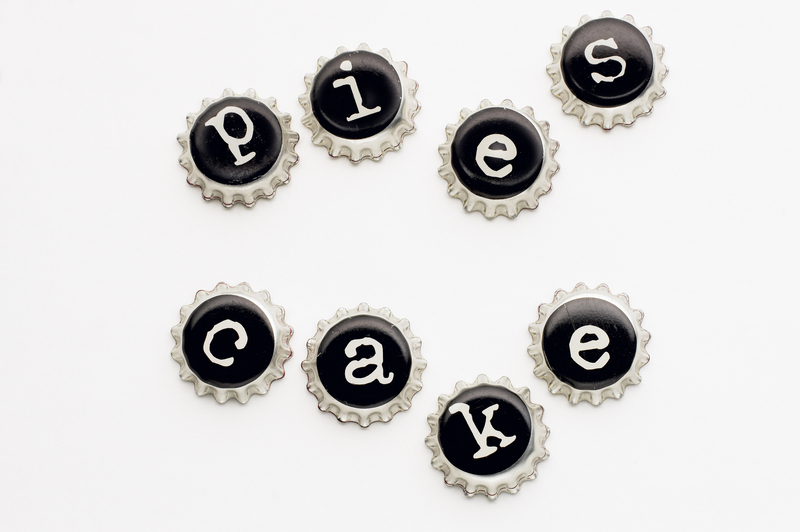Waste Prevention Made Easy: Essential Tips for Your Home
Living sustainably isn't just a trend--it's an important way to reduce our environmental impact and save money. Waste generation in households continues to rise, but the good news is that making a significant difference starts at home. This comprehensive guide offers a variety of waste prevention tips you can easily implement to minimize your ecological footprint, streamline your household, and even foster a more organized living space.
Understanding the Importance of Household Waste Reduction
Every year, millions of tons of waste end up in landfills. Most of it comes from daily household activities--excess packaging, unused food, single-use plastics, and more. Practicing waste avoidance at home has far-reaching impacts, including:
- Conserving natural resources
- Reducing landfill use and pollution
- Saving energy and water linked to production and landfill management
- Saving money by buying only what you need
When you reduce and prevent waste at home, you become an active part of the solution. Let's explore waste prevention strategies that are easy and effective for any household.

Declutter with Intention: The First Step in Home Waste Prevention
Decluttering is more than a seasonal activity--it's an essential waste prevention method. When you know what you have, you avoid redundant purchases, keep items in use, and discover new ways to reuse. Here's how to get started:
Sort and Assess Regularly
- *Designate regular days to sort through cabinets, drawers, and closets. Separate items into categories: keep, donate, recycle, or discard.*
- *Assess which items you no longer use or need. If they're in good condition, find local charities or online groups for donation.*
- *Repurpose old clothes, jars, and containers around the house--torn shirts can become cleaning rags, and jars can store pantry items.*
By decluttering, you prevent waste and create space for what truly matters.
Adopt the "Refuse, Reduce, Reuse, Recycle" Philosophy
Many people are familiar with this classic waste prevention strategy, but how well do you practice it at home?
- Refuse: Say no to needless packaging, plastic bags, straws, and takeout containers.
- Reduce: Buy only what you need. Opt for quality over quantity.
- Reuse: Use containers, bags, bottles, and other durable items multiple times.
- Recycle: Sort waste correctly using your local recycling guidelines.
Put this philosophy into everyday practice and you'll significantly lower the amount of household waste generated.
Smart Shopping: Prevent Waste Before It Starts
*Prevention is always better than cure!* Smart shopping habits can drastically reduce the waste that enters your home. Here's how to shop with waste prevention in mind:
1. Make Detailed Shopping Lists
- Plan your meals and household needs in advance.
- Stick to your shopping list to avoid impulse buys and food wastage.
2. Buy in Bulk
- Choose products with less packaging by buying in bulk and bringing your own containers for grains, nuts, and household supplies.
3. Avoid Single-Use Products
- Choose items like reusable water bottles, shopping bags, and coffee mugs.
- Avoid pre-packaged produce--select loose fruits and veggies instead.
4. Read Labels and Choose Sustainable Brands
- Opt for brands with eco-friendly packaging and ethical sourcing.
- Look for recycled-content products.
Smart purchasing doesn't just support waste prevention; it also supports businesses that value sustainability.
Kitchen Wisdom: Cutting Food Waste at Home
Food waste is a major contributor to household trash. However, a few simple tricks can help you prevent food waste and save money!
Plan and Store Food Properly
- Meal Plan: Decide what to cook in advance.
- FIFO (First In, First Out): Place new groceries behind older ones to use up what you already have.
- Freeze or Preserve: Freeze portions or preserve surplus produce for later use.
Get Creative with Leftovers
- Transform leftovers into soups, casseroles, or stir-fries.
- Blend overripe fruit into smoothies or bake them into desserts.
Compost Food Scraps
- Compost vegetable peelings, eggshells, and coffee grounds instead of tossing them in the trash. Composting reduces landfill waste and creates nutrient-rich soil for your garden!
Bathroom and Cleaning Waste Prevention Tips
*The bathroom and cleaning closet are hotspots for single-use items and excessive packaging.* Here's how to reduce waste in these areas:
- Switch to bar soap or refillable liquid soap dispensers.
- Choose reusable cloths instead of paper towels for cleaning.
- Purchase cleaning supplies in bulk or make your own using simple ingredients like vinegar and baking soda.
- Try reusable razors and eco-friendly toothbrushes (like bamboo options).
- Use washable makeup removal pads instead of disposable wipes or pads.
Little changes in these rooms have a big impact on overall home waste prevention.
Clothing and Textile Waste Prevention
The fashion industry is a major source of junked fabrics and unwanted clothes. Adopt a waste-conscious wardrobe with these tips:
Buy Less, Choose Well
- Buy quality pieces that last longer and withstand trends.
- Support ethical brands which often use eco-friendly materials.
Repair and Repurpose
- Sew on patches or buttons to revive worn-out clothes.
- Turn old shirts into cleaning cloths or tote bags.
Donate or Recycle
- If clothes aren't wearable, check for textile recycling programs in your area.
- Donate unused garments to charities or local thrift stores.
Waste Prevention in Home Office and School Supplies
Digitization is helpful, but schools and home offices still generate paper and plastic waste. Here's how you can minimize office-based waste:
- Print only when necessary--go digital with bills, notes, and documents.
- Use refillable pens, mechanical pencils, and recycled paper products.
- Donate unused school or office supplies to local programs or libraries.
- Choose durable and long-lasting supplies.
Eco-Friendly Home Improvements: Long-Term Waste Prevention
*Investing in your home's infrastructure can ensure sustained waste prevention for years to come.* Consider these improvements:
- Install a water filter to reduce bottled water usage.
- Use energy-efficient appliances--less energy means less waste and pollution.
- Switch to LED lighting for longer-lasting bulbs.
- Collect rainwater for gardens and landscaping, reducing water waste.
Teaching Kids About Waste Prevention
Waste prevention is a skill best learned early. Involve children to make waste reduction a family affair:
- Create sorting games for recycling bins.
- Let kids help with composting.
- Craft with reusable materials for art projects.
- Read books and watch documentaries about the importance of reducing household waste.
Common Household Waste Types--and How to Prevent Them
1. Packaging Waste
- Buy loose fruits and vegetables.
- Choose concentrated products (like detergents) with minimal packaging.
- Recycle cardboard and plastics where accepted.
2. Food Waste
- Store food correctly and use leftovers creatively.
- Plan meals and shopping trips thoughtfully.
3. Plastic Waste
- Switch to glass, steel, or bamboo containers.
- Purchase refillable products and avoid single-use plastics.
4. Electronic Waste
- Donate or recycle old devices at qualified centers.
- Buy energy-efficient and upgradeable devices.
5. Hazardous Waste
- Dispose paints, batteries, and cleaners responsibly--never pour down the drain.
- Seek local hazardous waste drop-off programs.
Tracking Your Progress: Waste Prevention at Home
Staying motivated is easier when you track your waste prevention efforts. Try these strategies:
- Weigh or count how much trash you produce weekly and set goals to reduce it.
- Celebrate milestones (such as a week without takeout containers) with your family or roommates.
- Share your tips and progress with neighbors or online communities to inspire others.

Conclusion: Make Waste Prevention a Lifestyle
Preventing waste at home is simple when approached with mindful actions and the right information. By implementing easy waste reduction strategies, you'll not only help the environment--you'll likely discover that your home feels cleaner, more efficient, and even more inspiring.
Start small if you need to; remember, every step toward waste prevention makes a positive difference. Your home can pave the way for a greener, more sustainable world--one responsible choice at a time.
Ready to reduce household waste? Choose one or two of these waste prevention tips and put them into action today. Over time, your efforts will add up to make a significant impact--both for your home and the planet.
Frequently Asked Questions About Household Waste Prevention
- What is the most effective way to prevent household waste?
Being mindful of your purchases, avoiding single-use items, and reusing and recycling materials wherever possible are some of the most effective ways to prevent waste. - How can I get my family involved in waste reduction?
Lead by example, make waste sorting and recycling easy, and encourage participation through fun family challenges or eco-friendly rewards. - Can waste prevention really save money?
Absolutely! Buying less, reusing items, and avoiding unnecessary disposables mean less spent over time. - Is composting worth it for small households?
Yes, even a small bin or community composting service can make a big difference, diverting food scraps from landfills and enriching soil.
Make waste prevention easy and effective--your journey to a less wasteful home starts now.